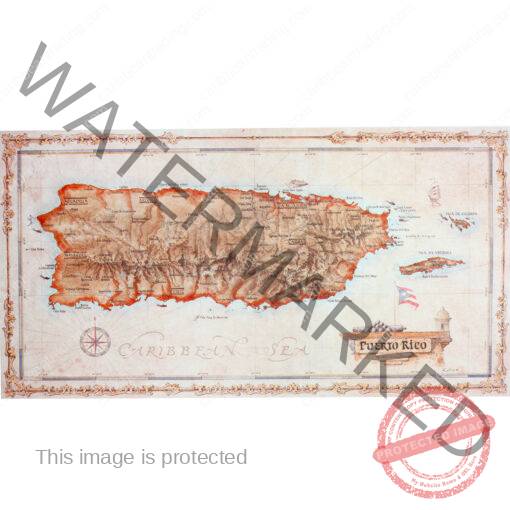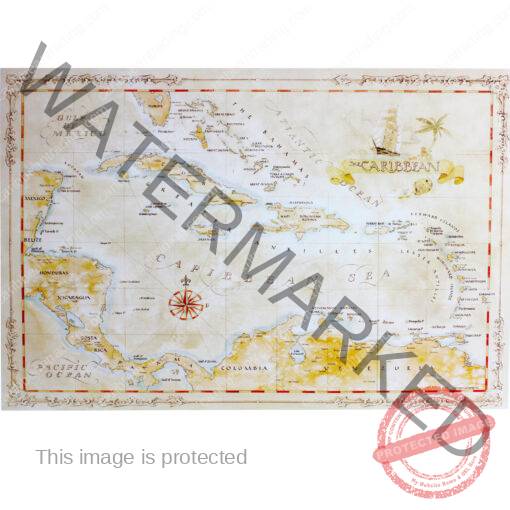Caribbean Travel Tips
Traveling to the Caribbean as an American: What to Keep in Mind
The Caribbean is a dream destination for many Americans, offering pristine beaches, crystal-clear waters, and vibrant cultures. As an easily accessible getaway from the mainland, it draws millions of U.S. visitors each year. However, traveling to the Caribbean—despite the proximity—requires some planning and understanding of local nuances to make the most of your trip. Here’s what you should consider when traveling to the Caribbean as an American.
1. Passports and Entry Requirements
One of the first things Americans need to check before planning a trip to the Caribbean is the entry requirements for the specific island they are visiting. Although the Caribbean consists of multiple countries and territories, the rules for entry vary significantly.
For instance, if you’re traveling to U.S. territories like Puerto Rico or the U.S. Virgin Islands, you do not need a passport. However, for most other Caribbean nations, including Jamaica, the Bahamas, and the Dominican Republic, a valid passport is required. Some countries also require a visa for longer stays, though many offer visa-free travel for short stays for U.S. citizens.
Make sure your passport has at least six months of validity remaining at the time of your travel, as this is a common requirement. Additionally, keep in mind that many islands, such as Barbados or the Cayman Islands, require you to show proof of a return ticket upon arrival.
2. Health and Safety Precautions
Traveling to the Caribbean presents some unique health considerations that Americans might not face at home. The most common concern is mosquito-borne illnesses, such as Zika, Dengue, and Chikungunya. Although the risk varies depending on the island and the season, it’s important to take precautions. Always use insect repellent, wear long sleeves and pants in the evenings, and consider staying in accommodations with screens or air conditioning.
Before traveling, check if any vaccinations are recommended or required. While most Caribbean islands don’t require special vaccinations for entry, it’s good practice to be up-to-date on routine vaccinations like hepatitis A and typhoid, especially if you plan to explore rural areas or eat from street vendors.
If you’re traveling during hurricane season (June to November), pay close attention to weather forecasts and consider travel insurance that covers trip cancellations or delays due to natural disasters.
3. Currency and Payments
The Caribbean comprises numerous countries, each with its own currency, although the U.S. dollar is widely accepted on most islands. Some territories, like Puerto Rico and the U.S. Virgin Islands, use the U.S. dollar as their official currency, making transactions straightforward for American travelers.
In other destinations, like Jamaica (which uses the Jamaican Dollar), the Bahamas (Bahamian Dollar), and Barbados (Barbadian Dollar), local currencies are typically accepted alongside the U.S. dollar, though exchange rates can vary. It’s advisable to carry small bills in U.S. dollars to avoid issues with change or inflated exchange rates.
Credit cards are generally accepted in tourist areas and large establishments, but in smaller, remote regions or street markets, cash is still king. Make sure to notify your bank of your travel plans to avoid having your card declined due to suspected fraud. If you are one of those who keep up with gambling when you travel, remember to check safe sites so you can enjoy the American casinos from the NonGamStopBets list.
4. Cultural Etiquette
Caribbean culture is incredibly diverse, influenced by African, European, Indigenous, and Asian heritage. Each island has its own unique traditions, but there are some general cultural etiquettes that apply across the region.
First, be respectful of local customs and dress codes. While beachwear is appropriate on the shore, it’s often frowned upon to wear swimsuits or revealing clothing in town areas or restaurants. In some countries, like the Bahamas, it’s even illegal to wear camouflage clothing.
Politeness and friendliness are integral to Caribbean cultures. A simple “Good morning” or “Good afternoon” when entering a shop or restaurant is often expected. On many islands, locals appreciate a laid-back, friendly attitude, so showing patience and flexibility, particularly with time, can go a long way. In fact, the concept of “island time” reflects a more relaxed pace of life that can differ from the fast-paced environment Americans are used to.
Additionally, tipping practices in the Caribbean generally align with U.S. customs. A 10-15% tip in restaurants is standard, and some establishments may include a service charge on your bill. In places where tipping isn’t the norm, rounding up your bill or giving a small tip is still appreciated.
5. Transportation and Getting Around
The type of transportation available in the Caribbean can vary greatly depending on which island you visit. In larger destinations like the Dominican Republic or Jamaica, you’ll find buses, taxis, and rental car services. Renting a car can be a great option if you want to explore beyond the tourist areas, but be aware that driving can be a challenge due to narrow roads, unclear signage, and different driving laws (e.g., driving on the left side in some countries like Barbados and the Bahamas).
Taxis are widely available but may not be metered in some areas, so it’s a good idea to agree on a fare before starting your journey. Some islands offer ride-sharing services like Uber or local equivalents, but this is not universal.
If you’re island-hopping, ferries and small planes are often the best way to travel between nearby islands, but check schedules in advance as services can be less frequent than expected.
6. Accommodations and All-Inclusive Resorts
Americans traveling to the Caribbean often choose all-inclusive resorts, which can offer a convenient and stress-free vacation experience. These resorts typically cover accommodation, food, drinks, and some activities in one price, making them an attractive option for families or those who prefer not to worry about planning every detail.
However, if you want to immerse yourself more in local culture, consider staying at boutique hotels or vacation rentals. These offer a more intimate experience and allow you to explore local restaurants, markets, and neighborhoods.
Regardless of where you stay, check online reviews and ratings to ensure the accommodation meets your expectations. Some Caribbean resorts may have limited amenities or outdated facilities, so it’s always wise to do your research before booking.
7. Local Cuisine and Dining Tips
Food in the Caribbean is as diverse as its cultures, with influences from African, Spanish, French, Indian, and Indigenous cooking. While American travelers will find familiar fast food chains in many tourist hubs, the local cuisine is well worth exploring.
Dishes like jerk chicken from Jamaica, roti from Trinidad and Tobago, and conch fritters from the Bahamas are staples that provide a true taste of the islands. Don’t hesitate to explore street food options for an authentic experience, but make sure to choose vendors that appear clean and are recommended by locals or travel guides.
Additionally, if you have dietary restrictions or food allergies, it’s important to communicate clearly with restaurant staff. In more tourist-oriented areas, you’re likely to find English-speaking servers, but in smaller, more remote locations, language barriers may arise.
8. Island Hopping and Planning Your Itinerary
One of the biggest advantages of traveling to the Caribbean is the opportunity for island hopping. Many islands are located relatively close to one another, making it easy to visit multiple destinations in one trip. For example, from the U.S. Virgin Islands, you can easily ferry over to the British Virgin Islands for a day trip.
When planning your itinerary, be mindful of travel times between islands and the availability of transportation. Some islands have limited flight connections, and ferries may not operate daily, especially during the off-season. Additionally, each island has its own unique attractions, so be sure to research what each destination offers and plan accordingly.
Conclusion
Traveling to the Caribbean as an American offers an exciting blend of adventure, relaxation, and cultural discovery. With just a little preparation—whether it’s checking entry requirements, brushing up on local etiquette, or planning for health precautions—you can ensure that your Caribbean escape is memorable for all the right reasons. Whether you choose to stay in an all-inclusive resort or venture off the beaten path to discover hidden gems, the Caribbean offers something for everyone.







